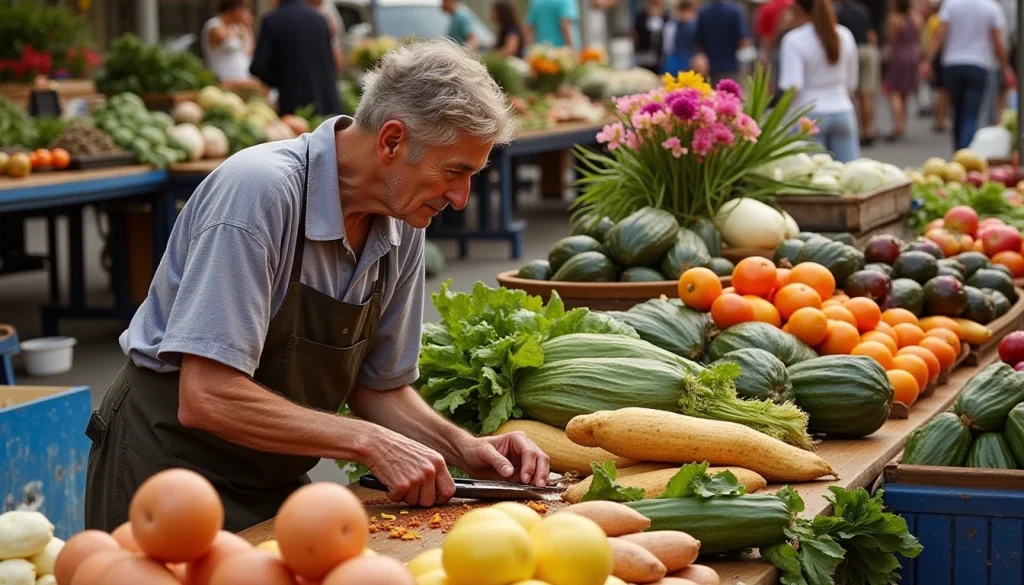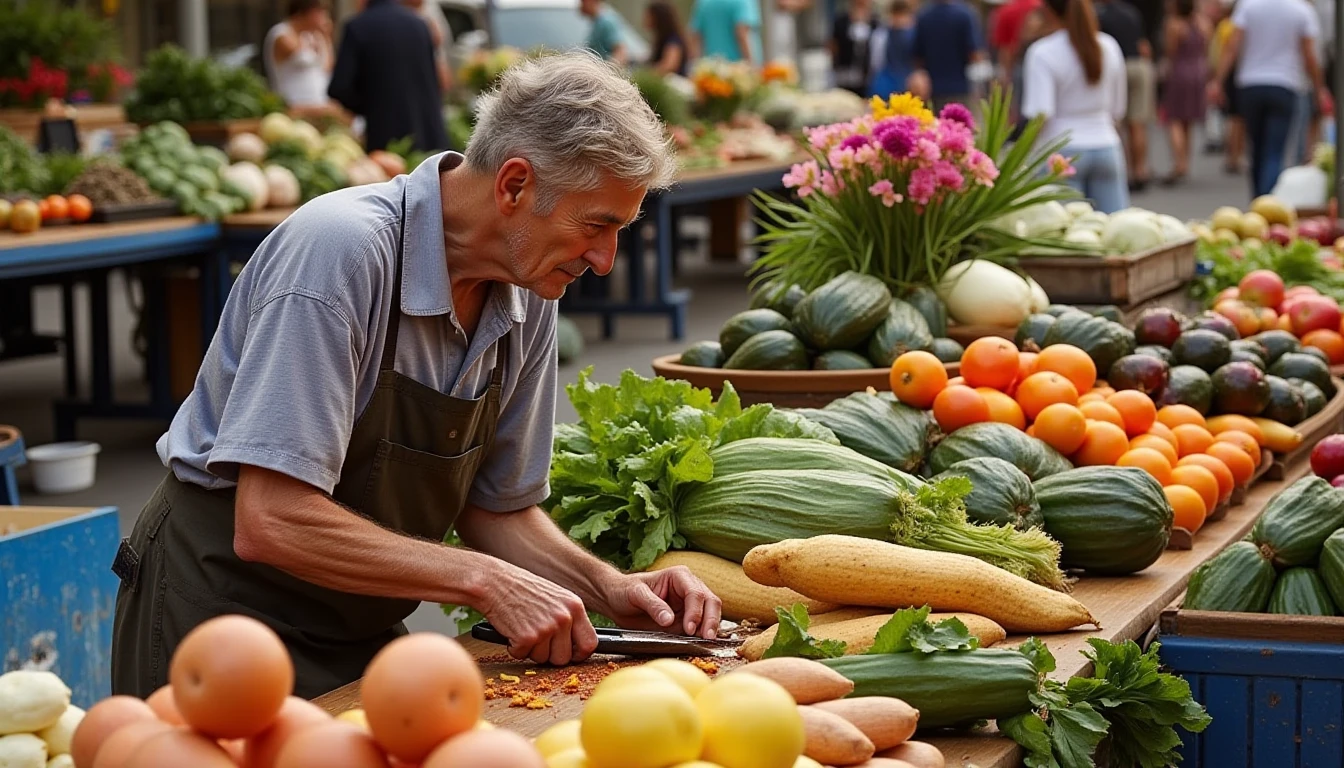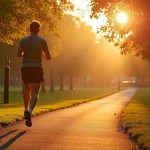Nourishing Your Body from Within
Aging gracefully is not solely about maintaining physical appearance; it’s also about nourishing your body to support overall vitality and well-being. Diet plays a crucial role in this process, providing the nutrients necessary to sustain energy levels, repair tissues, and protect against age-related diseases. A balanced diet rich in whole foods can significantly impact how we age.
One of the most effective dietary approaches is incorporating an abundance of antioxidants into your meals. Antioxidants, found in fruits, vegetables, nuts, seeds, and legumes, help neutralize free radicals that contribute to cellular damage and aging. For instance, berries like blueberries, strawberries, and raspberries are packed with anthocyanins, which not only give them their vibrant colors but also act as potent antioxidants. Similarly, leafy greens such as spinach and kale contain carotenoids that protect your cells from oxidative stress, thereby promoting longevity. By integrating these nutrient-dense foods into daily meals, you can enhance your body’s defense mechanisms against premature aging.
Moreover, dietary habits should focus on reducing inflammation throughout the body. Chronic inflammation has been linked to numerous age-related conditions such as cardiovascular disease and arthritis. A Mediterranean diet is often recommended for its anti-inflammatory properties due to its emphasis on olive oil, fish, nuts, and whole grains. Omega-3 fatty acids found in salmon, walnuts, and flaxseeds are particularly beneficial because they reduce inflammation while also supporting brain health. Additionally, minimizing the intake of processed foods and sugars can further alleviate inflammation, allowing for a more robust immune system and smoother aging process.
Beyond specific nutrients and dietary patterns, hydration is another critical factor often overlooked in discussions about diet and aging. Water plays an essential role in maintaining skin elasticity, facilitating digestion, and ensuring proper organ function. Many people do not drink enough water daily, leading to dehydration, which accelerates the signs of aging such as wrinkles and dryness. Incorporating more fluid-rich foods like cucumbers, melons, and soups can help meet hydration needs without solely relying on drinking large quantities of water. Proper hydration also aids in flushing out toxins from the body, thereby contributing to a healthier complexion and overall well-being.
Engaging Your Body with Purposeful Exercise
Physical activity is fundamental for graceful aging as it helps maintain mobility, strength, flexibility, and mental acuity. Regular exercise not only keeps your muscles toned but also promotes cardiovascular health and cognitive function. While many associate exercise with aesthetics or weight management, its benefits extend far beyond these superficial aspects.
Aerobic exercises are particularly beneficial in promoting heart health and endurance. Activities such as brisk walking, jogging, cycling, swimming, or dancing can significantly improve cardiovascular fitness by strengthening the heart muscle and enhancing circulation. According to research, aerobic activities performed consistently over time not only reduce the risk of heart disease but also lower blood pressure and cholesterol levels. Moreover, these exercises stimulate the production of endorphins, often referred to as “feel-good” hormones, which help combat stress, anxiety, and depression—common mental health challenges in aging populations.
Strength training is equally important for maintaining muscle mass and bone density. As we age, our bodies naturally lose muscle tissue, leading to a condition called sarcopenia. Engaging in resistance exercises using weights or resistance bands can counteract this decline by stimulating muscle growth and preventing the onset of osteoporosis. Additionally, strength training improves balance and coordination, reducing the risk of falls—a significant concern for elderly individuals. Incorporating bodyweight exercises like squats, push-ups, and lunges into a routine can be an effective way to build strength without requiring specialized equipment.
Flexibility and balance exercises are often overlooked but play a crucial role in preventing injuries and maintaining mobility. Yoga and tai chi are two popular practices that integrate both flexibility and balance training while also promoting mindfulness. These low-impact activities help improve joint health by increasing range of motion, enhancing posture, and reducing stiffness. Furthermore, they encourage deep breathing techniques, which can lower stress hormones and promote relaxation. Incorporating even a few minutes each day devoted to stretching or practicing these gentle movements can significantly enhance flexibility and reduce the likelihood of age-related limitations.
Cultivating Mental Agility with Mindfulness Practices
Mental agility is just as important as physical fitness when it comes to aging gracefully. Engaging in mindfulness practices not only sharpens cognitive abilities but also fosters emotional resilience, reducing stress and anxiety associated with aging.
Mindfulness meditation involves focusing one’s attention on the present moment without judgment. This practice can significantly enhance concentration and memory retention by training the brain to stay focused on tasks at hand rather than being distracted by intrusive thoughts or external stimuli. Research has shown that regular mindfulness practitioners exhibit increased activity in areas of the brain responsible for learning, memory, and emotional regulation. By dedicating just a few minutes each day to mindful breathing exercises or guided meditations, individuals can improve their cognitive performance over time.
Cognitive activities such as puzzles, crosswords, or playing musical instruments are also excellent ways to keep the mind sharp. These pursuits stimulate neuroplasticity—the brain’s ability to reorganize itself by forming new neural connections throughout life—and reduce the risk of developing dementia and Alzheimer’s disease. Engaging in mentally challenging tasks promotes the growth of neurons within specific regions of the cerebral cortex, enhancing overall cognitive reserve. For instance, learning a new language or musical instrument not only provides a sense of accomplishment but also strengthens neural pathways essential for problem-solving skills.
Additionally, social interaction plays a vital role in preserving mental health and cognitive function among older adults. Regular engagement with friends, family, and community groups fosters emotional support networks that can combat feelings of isolation often experienced during aging. Participating in group activities such as book clubs or hobby classes encourages intellectual stimulation while also providing opportunities for meaningful connections. These interactions contribute to a positive outlook on life, reducing stress levels which are known contributors to cognitive decline.
Prioritizing Sleep and Rest
Sleep is a vital component of the aging process, affecting both physical and mental health profoundly. Quality sleep not only rejuvenates the body but also plays a critical role in memory consolidation, emotional regulation, and overall well-being. Ensuring adequate rest becomes increasingly important as we age due to changes in circadian rhythms and hormonal shifts.
Sleep is crucial for cognitive function; it allows the brain to process information gathered throughout the day and consolidate memories into long-term storage. During deep sleep stages, the glymphatic system flushes out toxins that accumulate between neurons, including beta-amyloid proteins linked with Alzheimer’s disease. Thus, sufficient rest not only sharpens mental faculties but also protects against neurodegenerative conditions. Establishing consistent bedtime routines helps regulate this process by signaling to the body when it’s time to wind down for sleep.
Maintaining a balanced circadian rhythm is essential for optimal health as we age. Disruptions in the internal clock can lead to fragmented sleep patterns, daytime fatigue, and an increased risk of chronic illnesses. Exposure to natural light during daylight hours helps synchronize biological processes with external environmental cues, promoting healthier sleep-wake cycles. Additionally, limiting screen time before bed reduces exposure to blue light emitted by electronic devices which interfere with melatonin production—a hormone crucial for inducing sleepiness.
Creating a conducive sleeping environment also plays an important role in enhancing rest quality. Ensuring that your bedroom is cool, quiet, and dark encourages deeper stages of sleep where most repair occurs. Investing in comfortable bedding materials suited to individual preferences can further enhance relaxation. Practicing relaxation techniques such as deep breathing exercises or progressive muscle relaxation before bedtime may help ease into slumber more easily.

Embracing Holistic Wellness Through Community Involvement
Community involvement is an essential aspect of holistic wellness that contributes significantly to graceful aging. Participating in social activities fosters emotional connections, provides a sense of belonging, and promotes overall mental health. Engaging with others through shared interests or causes can mitigate feelings of loneliness often associated with advancing age.
Volunteering for local charities or non-profit organizations offers numerous benefits beyond just giving back to society. It allows individuals to remain active participants in their communities while gaining personal fulfillment from contributing positively towards societal issues. For instance, volunteering at animal shelters provides opportunities to interact with animals and people alike, fostering new relationships while also promoting physical activity through tasks such as walking dogs or maintaining facilities.
Joining clubs or interest groups centered around hobbies can enrich social lives by connecting like-minded individuals who share common passions. Whether it’s joining a book club for intellectual discussions or participating in craft workshops focused on creative expression, these activities provide structured settings where friendships can develop naturally over time. Regular participation in group activities also encourages regular exercise through organized events such as walking groups or dance classes.
Attending cultural events or public gatherings not only broadens perspectives but also keeps individuals engaged with current trends and societal changes. Exposure to diverse viewpoints helps maintain cognitive sharpness while promoting cross-cultural understanding essential for harmonious coexistence within multicultural societies. Engaging in arts festivals, concerts, or theater productions enriches personal experiences by offering unique opportunities for entertainment and self-expression through various mediums.



